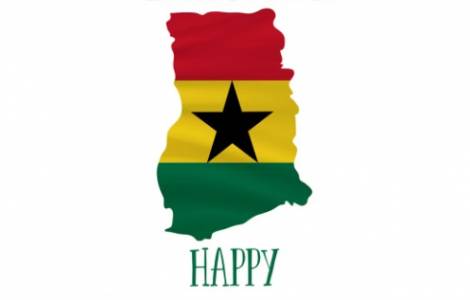
Accra (Agenzia Fides) - Today, March 6, Ghana celebrates its national independence, obtained from the United Kingdom in 1957, albeit still with Queen Elizabeth as Head of State. On July 1, 1960, the Republic was proclaimed with independence leader Kwame Nkrumah as its first president.
However, the date of March 6, 1957 is also celebrated to mark the fact that Ghana was the first country in sub-Saharan Africa to gain independence. The birth of the Republic is celebrated on July 1. After a troubled period marked by coups and the imposition of one-party rule, Ghana has since the 1990s become an example of African democracy with a series of elections organized in a regulated and peaceful manner.
In 2001, the country was also able to benefit from a reduction in its external debt within the framework of the Highly Indebted Poor Country (HIPC) Initiative. However, this debt has risen again to $28.4 billion, despite proceeds from oil extraction which began in 2010. So far, the country has collected more than 8 billion dollars from the exploitation of its hydrocarbon resources. However, the government used the leeway created by the oil inflows to borrow more to finance recurrent expenditures such as paying salaries, instead of investing these financial resources in development projects that could repay these loans.
One may therefore wonder to what extent political independence is affected by financial dependence on international creditors. Moreover, the island of stability, as Ghana was considered until recently, risks giving way to insecurity, with the approach of jihadist groups operating in neighboring states, and the escalation of the conflict in Bawku, a region in northeastern Ghana, bordering Togo to the east and Burkina Faso to the north, where the Mamprusi and Kusasi populations have been clashing for years over land ownership issues.
In this regard, the Ghanaian bishops, on February 9, after the clashes that left at least 15 dead, reiterated their concern: "We are deeply concerned about the deterioration of the security situation in the area". "We have closely followed and monitored over the years the ongoing conflict between the Mamprusi and the Kusasi which has resulted in the loss of precious lives and the destruction of property. This ongoing conflict is gradually turning Bawku into a ghost town", underline the Bishops. "The insecurity situation in and around Bawku is further aggravated by the recent influx of refugees from Burkina Faso (fleeing jihadist violence), which increases pressure on the already impoverished and beleaguered communities hosting refugees seeking refuge. This influx could become fertile ground for the infiltration of terrorist groups operating in neighboring countries", warn the Bishops who conclude by launching an appeal "to the factions involved in the Bawku conflict, as well as all other interested parties, such as traditional leaders, religious groups, the press and electronic media, political parties and the international community to do everything in their power to help the peacebuilding process". (L.M.) (Agenzia Fides, 6/3/2023)